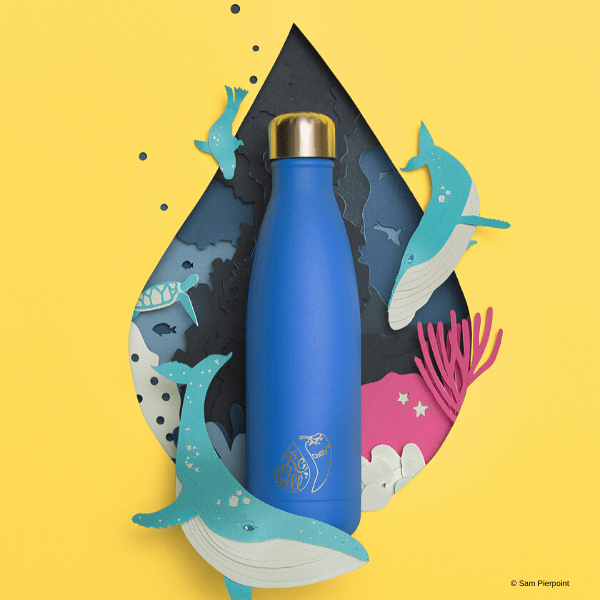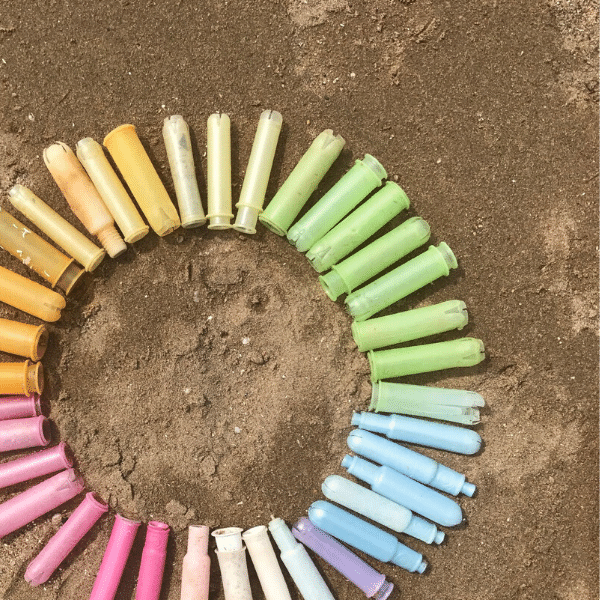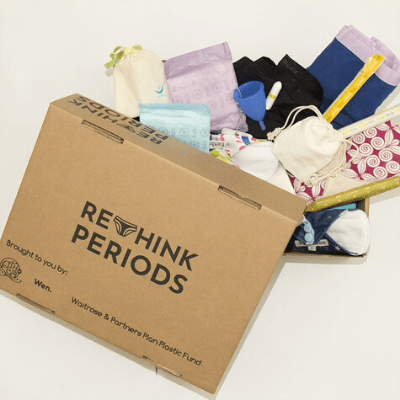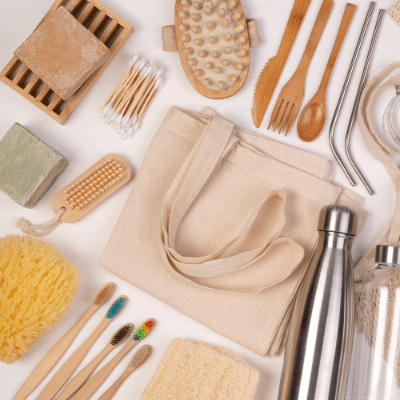12 ways to reduce plastic pollution
Small changes that make a big difference
How can I use less plastic?
Plastic – once hailed as a miracle product. It’s lightweight, virtually indestructible and cheap to produce. But as we all know, our addiction to it is out of control and the impact on our environment and climate has been catastrophic. Globally, less than 10% of the plastic produced has ever been recycled. That means there’s A LOT of plastic out there – in landfill, incinerated – or worse, polluting our oceans and natural environment.
At City to Sea, we’re campaign to prevent plastic pollution at source – starting with the worst offenders – these are the items that are washing up on our beaches and polluting our rivers. We champion the waste hierarchy and encourage everyone to refuse, reduce, reuse and refill before even thinking about recycling. We believe we need to use less plastic – and we’re committed to helping individuals and businesses do just that.
So, if you’re ready to start cutting back on the amount of single-use plastic in your life (hooray!) here are our top tips to get you started.

1. Do a plastic audit
When it comes to cutting back on the amount of plastic you use, a great place to start is by doing a plastic audit and collecting your waste for a week. This helps you really get a feel for what you’re using and then you can start to cut out the easy to replace items.
Our friends over at Everyday Plastic have got you covered with this one – they’ve created a super simple programme with everything you need to audit your waste for week and understand what you’re using, and what the impact of that would be over a year.

2. Choose to reuse
We might be biased, but we think the Refill Revolution is where it’s at! It’s time to say goodbye to our disposable, single-use culture and choose to reuse. Thankfully, there are plenty of reusable options out there, and it’s easy to reduce your plastic footprint without breaking the bank.

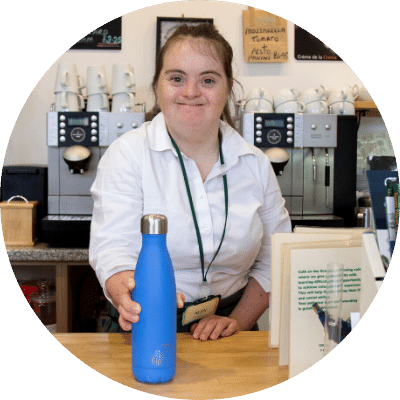
3. JOIN THE REFILL REVOLUTION
Our award-winning Refill campaign makes it easy to reuse and refill your water bottle on the go, rather than buying a single-use plastic bottle. Even better, we’re expanding the campaign so you’ll soon be able to use the app to find out where to fill up everything from your coffee cup, to your lunch-box and even your groceries. If just 1 in 10 Brits refilled once a week, we’d save around 340 million plastic bottles a year!

4. STOCK UP IN YOUR LOCAL ZERO-WASTE SHOP
Now you’ve got the app – find your local zero-waste shop and fill up on everything from store-cupboard essentials to, household and cleaning products. It’s all helping to make single-use plastic packaging a thing of the past.

DONATE TO CITY TO SEA’S CAMPAIGNS
At City to Sea our vision is a world where everyone connects their actions to our oceans, so all life can thrive. Oceans and waterways around the world urgently need our help and we’re hugely grateful to our supporters for donating to City to Sea. Our donations go directly to our plastic-preventing campaigns, powering on-the-ground community action, lobbying governments and creating powerful, playful content designed to inspire change.

5. DON’T BELIEVE THE WIPE
In the UK, we use a mind-blowing 11 billion wet wipes a year and despite what many of them say on the packet, – these should NOT be flushed down the toilet as they contain plastic and can block our sewers.
Plastic pollution and littering from ‘flushable’ wet wipes is on the rise – last year the Marine Conservation Society reported an increase of over 700% in the last decade. Find out more about wet wipes and how to be a good a**hole.

6. MICRO-MANAGEMENT
Microplastics (which are tiny microscopic pieces of plastic) are now found everywhere on earth – they’re in the deepest oceans and on the highest mountains and even found in the food we eat. In 2018, micro-beads were banned in ‘rinse-off’ products such as toothpaste, shower gels and face scrubs in the UK and many other countries. However, they also come from things like our clothes, carpets and even from the tyres on our cars!
Here are a few things you can do to get on top of these pesky plastics:
- Find the latest updates and info on what to look out for in Beat the Microbeads.
- Give up on the glitter – especially if you’re washing it off in the shower or basin, as it’s heading straight into our rivers. Changing to biodegradable glitter may not be the answer, as there’s no evidence that it’s safe to be washed down the drain.
- Wash synthetic clothes in a bag or microfibre catcher, and use a 30-degree gentle wash to reduce microfibre loss. We’ve tried the Guppy bag, which works a treat, but other options are available if you prefer.


7. AVOID THE INCONVENIENCE OF CONVENIENCE
Convenience foods tend to have the most plastic packaging. Think about your favourite dishes. Are there any you could easily make yourself? If you need to invest in a few kitchen gadgets, look out for second-hand bargains.
- For curries and stews, use a slow cooker overnight or while you’re at work.
- A soda-stream can provide as many fizzy drinks as you could possibly want.
- Use a blender to blitz up your own hummus or a fruit smoothie.
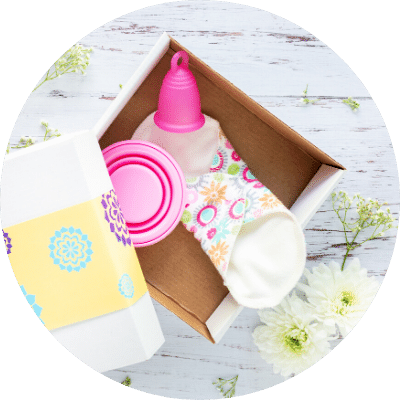
8. Have a plastic-free period
Menstrual products are the fifth most common item found on Europe’s beaches, more widespread than single-use coffee cups, cutlery or straws! Most people don’t realise that menstrual products contain plastic, but a ‘conventional’ box of menstrual pads could contain the same amount of plastic as five carrier bags.
It’s estimated that every single day in the UK about 700,000 panty liners, 2.5 million tampons and 1.4 million pads are flushed down the toilet – many of which block our sewer systems and escape into our rivers and seas… We’ve been campaigning on the issue since 2017 – read on to find out how to avoid plastic when it comes to your period.


9. #SWITCHTHESTICK
Plastic cotton bud stems are one of the most commonly found plastic items washed up on our beaches and riverbeds. Here in the UK we’re flushing them down the loo… in their millions.
You can #SwitchtheStick too. Choose paper cotton buds rather than plastic when you’re shopping and make sure they go in the bin and NOT the toilet.

10. GET VEG-UCATED
Avoiding plastic-packaged veg is getting easier, as some supermarkets are introducing plastic-free aisles but it’s even better to shop local if you can:
- Sign up for a veg box! Not only will you be avoiding pointless plastic, but you’ll be supporting a local farmer, reducing your food miles and eating seasonally. Bonus points if you go organic as well to help reduce harmful pesticides and protect our precious wildlife. Check out the Soil Association’s website to find your nearest veg box.
- Check out your local greengrocer – they’ll often be selling local and seasonal produce and can be cheaper than supermarkets.
- Grow your own! Test out your green fingers and see what you can grow in the garden – not only will you save on plastic, you’ll benefit from time outside in nature and let’s face it – nothing beats a veggie you’ve grown yourself!


11. CHALLENGE THE SUPPLY CHAIN
Both at work and at home, ask your suppliers to reduce or remove unnecessary plastic packaging. Many amazing Bristol cafés such as Poco and Boston Tea Party have been very successful in persuading their veg and food suppliers to ditch the packaging. People power really does work.
Online stores like Surfdome also asked all their clothing suppliers to change the plastic packaging being sent to them. If you’re a business, talk to us about carrying out a plastics audit.

12. INSPIRE A CULTURE CHANGE
There are plenty of ways to inspire change in your workplace. Have a look around and see which single-use plastics could be removed, reduced or replaced.
- Remove plastic cups from the water fountain and coffee machine, and tell the management you no longer want them (so they don’t keep restocking them).
- Ask your management to provide reusable bottles, glasses and cups for staff, visitors and customers.
- Replace bottled water with reusable bottle sales.
- Make it fun – organise team challenges.
- Share the savings you’re making on social media. It’s great for your company’s corporate social responsibility (CSR) and encourages others to take action. Tag us, so we can share your good news.

You may unsubscribe at any time. Check out our Privacy Policy for more information on how we store and protect your data.
reduce plastic with our campaigns
There are lots of ways to reduce plastic pollution in our lives, why not explore our campaigns aimed at tackling the top 10 plastic items most commonly washed up on our beaches and found in our waterways.


